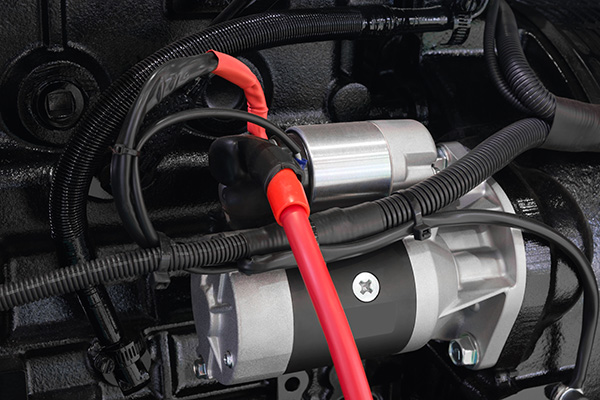
A reliable starter motor is necessary for your vehicle's performance, as it initiates the engine's combustion process. When the starter motor fails, it leaves you stranded and frustrated. Diagnosing a bad starter motor can save you from unexpected breakdowns and expensive repairs. We'll explore the key symptoms of a failing starter motor and how you can identify these issues early on.
Recognizing the Signs of a Failing Starter Motor
Your car's starter is crucial in getting your engine up and running. When you turn the ignition key or press the start button, the starter motor cranks the engine, allowing it to start. However, like any other component, the starter motor can wear out over time and eventually fail. Knowing the signs of a bad starter motor can help you diagnose the problem early and take appropriate action.
One of the most common signs of a bad starter motor is a clicking noise when you turn the key. This sound typically indicates that the starter solenoid, a small device that transmits electrical current from the battery to the starter motor, is malfunctioning. Although a weak battery can also cause a clicking noise, repeated clicking often points to a starter issue. If you hear this sound, having your starter inspected by a professional technician is essential to avoid being stranded.
Slow Cranking and Electrical Issues
Another symptom of a failing starter motor is slow or intermittent cranking. When you turn the key, the engine should start quickly and smoothly. However, if you notice that the engine cranks slowly or starts intermittently, it's a clear sign that the starter motor is struggling. This issue can be due to worn-out components inside the starter motor or electrical problems affecting its performance. Ignoring this sign can lead to complete starter failure, leaving you unable to start your car.
Electrical issues can also manifest as dimming headlights or interior lights when you attempt to start your car. If the starter motor is drawing too much power from the battery, it can cause other electrical components to lose power temporarily. This symptom indicates that the starter motor is not functioning properly and needs to be checked by a professional.
Grinding Noise During Ignition
A grinding noise when starting your car is a serious sign of a bad starter motor. This noise usually indicates that the gears inside the starter motor are worn out or damaged. Grinding can also occur if the starter drive gear is not engaging properly with the flywheel. If left unchecked, this problem can cause significant damage to the engine's flywheel, resulting in expensive repairs. If you hear a grinding noise, it's crucial to have your starter inspected and repaired as soon as possible to prevent further damage.
The Starter Motor Remains Engaged After the Engine Starts
If you notice that the starter motor remains engaged even after the engine has started, it's a clear sign of a malfunctioning starter. Normally, the starter motor disengages once the engine is running. However, if it remains engaged, it can lead to severe damage to the starter and the engine. This issue is often caused by a faulty ignition switch or a sticking starter relay. Immediate attention is required to prevent extensive damage to your vehicle.
Testing the Starter Motor
To diagnose a bad starter motor, you can perform a few simple tests. First, check the battery voltage using a multimeter. A fully charged battery should read around 12.6 volts. If the battery voltage is low, charge the battery and try starting the car again. If the battery is in good condition, but the car still won't start, the starter motor may be the problem.
Another test involves tapping the starter motor with a hammer or a metal tool. Sometimes, the internal components of the starter motor can get stuck, preventing it from functioning properly. Tapping the starter motor can free these components and allow the starter to work temporarily. If this method works, it indicates that the starter motor is failing and needs to be replaced.
You can also perform a voltage drop test to check the starter motor's performance. Connect the multimeter's positive lead to the positive terminal of the battery and the negative lead to the positive terminal of the starter motor. Have someone turn the ignition key while you observe the voltage reading. If the voltage drops significantly, it means that the starter motor is drawing excessive power and is likely faulty.
Maintaining Your Starter Motor
Regular maintenance is key to ensuring the longevity of your starter motor. Keep your battery in good condition, as a weak battery can put additional strain on the starter motor. Regularly inspect and clean the battery terminals to ensure a strong electrical connection. Additionally, have your starter inspected during routine maintenance checks to identify and address any potential issues before they escalate. By staying proactive, you can avoid unexpected starter failures and keep your car running reliably.
Don't wait until it's too late. Schedule an appointment with Lorentz Automotive for professional starter maintenance and avoid unexpected breakdowns.